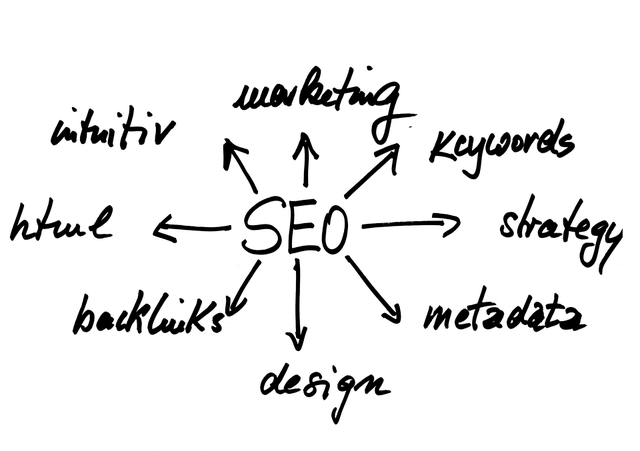Beginner SEO Training equips individuals with essential knowledge for enhancing online visibility. It emphasizes understanding keyword research and strategic content optimization, including on-page techniques like meta titles and headings. Off-page strategies, such as building high-quality backlinks, are crucial for establishing website authority. By combining these tactics, beginners can attract organic traffic, improve search engine rankings, and develop a robust online presence over time. Ethical practices, focusing on quality content and natural keyword usage, ensure long-term success while avoiding penalties. Advanced strategies involve targeting specific audiences with long-tail keywords, enhancing user experience, and staying updated with algorithm changes.
Dive into the world of online SEO Foundations, an essential guide for anyone seeking a solid Beginner SEO Training. This comprehensive article covers crucial aspects of search engine optimization (SEO), from understanding basic concepts to advanced strategies. Learn how keywords drive successful SEO, master on-page techniques, optimize website structure, and build quality backlinks. Discover ethical practices, common mistakes to avoid, and powerful analytics tools for measuring performance.
Understanding Search Engine Optimization (SEO) Basics

Search Engine Optimization, or SEO, is the art and science of optimizing websites to rank higher in search engine results pages (SERPs). For beginners in this field, understanding the fundamentals of SEO is crucial for any online visibility strategy. It involves a range of practices designed to enhance a website’s relevance and appeal to both users and search engines, primarily Google. A successful Beginner SEO Training should cover these basics, including keyword research, which is identifying the terms your target audience uses when searching for products or services related to your business.
Optimizing content around these keywords while ensuring it provides value to readers is essential. This includes on-page optimization practices like crafting compelling meta titles and descriptions, creating structured and readable content with headings, and using keywords naturally throughout text. Off-page SEO, another vital component, focuses on building quality backlinks from reputable websites, which act as votes of confidence in the eyes of search engines. By combining these strategies, beginners can lay a strong foundation for their online presence, attracting organic traffic and boosting their website’s authority over time.
The Role of Keywords in SEO Strategy

In the realm of Beginner SEO Training, understanding the role of keywords is fundamental. Keywords are the backbone of any successful SEO strategy, acting as the bridge between searchers and your online content. They represent the terms and phrases users type into search engines, making it essential to incorporate them naturally into your web pages’ titles, headings, meta descriptions, and content. By doing so, you send powerful signals to search algorithms, indicating that your page is relevant to specific user queries.
Effective keyword utilization goes beyond mere inclusion. It involves meticulous research to identify the most relevant and high-volume keywords related to your niche or industry. Tools like Google Keyword Planner can assist in this process by providing insights into search trends and competition levels. Once identified, these keywords should be strategically placed within your content, ensuring a balance between readability and optimization. This approach not only enhances your page’s visibility in search results but also significantly improves its chances of ranking higher over time.
On-Page SEO Techniques for Beginners

For beginners in Search Engine Optimization (SEO), on-page techniques are a crucial foundation to learn. This involves optimizing individual web pages for specific keywords and topics, ensuring search engines understand what your content is about. A key strategy is keyword research, where you identify relevant terms people use when searching for your product or service. These keywords should be strategically placed in your page’s title, headings, meta descriptions, and throughout the content to improve visibility.
Additionally, creating high-quality, unique content is vital. Search engines favor content that provides value to users, so writing informative, engaging copy will not only help with SEO but also enhance user experience. Using descriptive URLs and optimizing images with alt tags are other simple yet effective on-page techniques. These practices form a solid base for any beginner SEO training, enabling them to create pages that attract and engage visitors while ranking higher in search results.
Optimizing Website Structure and User Experience

Optimizing website structure is a crucial aspect of Beginner SEO Training. A well-organized site with logical navigation helps search engines understand your content hierarchy, making it easier for them to crawl and index your pages. This ensures that relevant information is readily available, improving user experience and potentially reducing bounce rates. A clean, intuitive structure also encourages visitors to explore more pages, increasing the chances of conversions or desired actions.
User experience (UX) plays a significant role in SEO success. Websites that offer a seamless, enjoyable experience are more likely to rank higher and attract repeat visitors. This involves optimizing page load speeds, ensuring mobile responsiveness, implementing clear calls-to-action (CTAs), and providing valuable content that meets user intent. By focusing on these UX elements, you can create a positive feedback loop where improved rankings lead to increased traffic and better engagement metrics.
Off-Page SEO: Building Quality Backlinks

Off-page SEO is an essential component for any beginner SEO training, as it focuses on actions taken outside your website to improve its search rankings. One of the key strategies in off-page SEO is building high-quality backlinks. These are incoming links from other websites that point to yours, and they act as votes of confidence in the eyes of search engines.
When creating a backlink, it’s crucial to aim for relevant, reputable, and authoritative sites. This means linking to resources that offer valuable content related to your niche. Search engines like Google use these backlinks to determine the relevance and trustworthiness of your website, which can significantly boost its visibility and organic reach when done right.
Measuring SEO Performance and Analytics Tools

Measuring SEO performance is a crucial step for any website owner or marketing professional, especially those undergoing Beginner SEO training. It allows them to understand the effectiveness of their strategies and make data-driven decisions. Various analytics tools are available to help track key metrics such as organic traffic, keyword rankings, bounce rates, and conversion rates. These tools provide insights into user behavior on a site, helping to identify areas for improvement or content that resonates well with the target audience.
For instance, Google Analytics is a popular choice, offering a comprehensive overview of website performance. It helps in monitoring traffic sources, user demographics, and engagement metrics. Other tools like SEMrush or Ahrefs provide advanced SEO features, including keyword research, backlink analysis, and competitor benchmarking. By leveraging these analytics resources, Beginner SEO practitioners can gain valuable intelligence to refine their on-page and off-page optimization efforts.
Ethical SEO Practices and Common Mistakes to Avoid

When diving into Online SEO Foundations, especially as a beginner, it’s crucial to understand ethical practices and common pitfalls to avoid. Ethical SEO involves optimizing your website while adhering to search engine guidelines, ensuring a positive user experience, and avoiding black-hat techniques that could lead to penalties. It’s about fostering a genuine connection with your audience rather than manipulating algorithms.
Beginner SEO Training should cover fundamental concepts like creating quality content, using relevant keywords naturally, and building legitimate backlinks. Conversely, mistakes to avoid include keyword stuffing, meta descriptions manipulation, hidden text, and excessive use of redirects or proxy sites – practices that may seem tempting but can significantly damage your site’s reputation and rankings. Remember, sustainable SEO is about long-term value and trust, not quick fixes.
Advanced SEO Strategies for Continued Growth

Once you’ve mastered the basics of SEO through a solid Beginner SEO Training, it’s time to explore advanced strategies for sustained growth. Keywords remain pivotal, but now you’ll delve into long-tail keywords and semantic search to target niche audiences more precisely. Utilize on-page optimization techniques like meta tag refinement, header tags, and internal linking to enhance content relevance.
Content creation takes center stage with strategies focusing on quality over quantity. User experience is another key area; optimizing site speed, mobile responsiveness, and easy navigation not only improves user satisfaction but also signals search engines of your site’s authority. Regularly update your SEO knowledge, stay informed about algorithm changes, and adapt your strategies accordingly to maintain and improve your online visibility.
